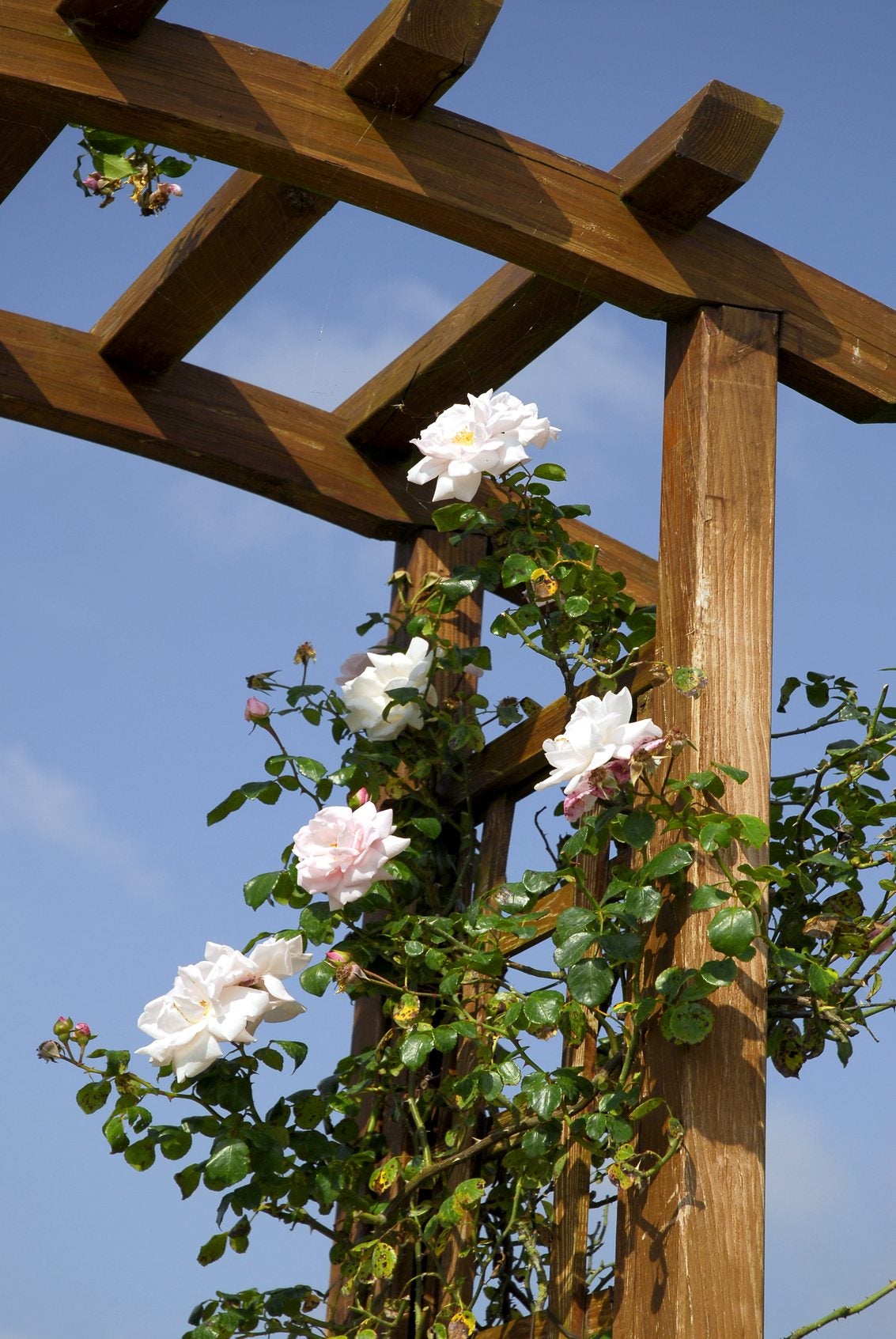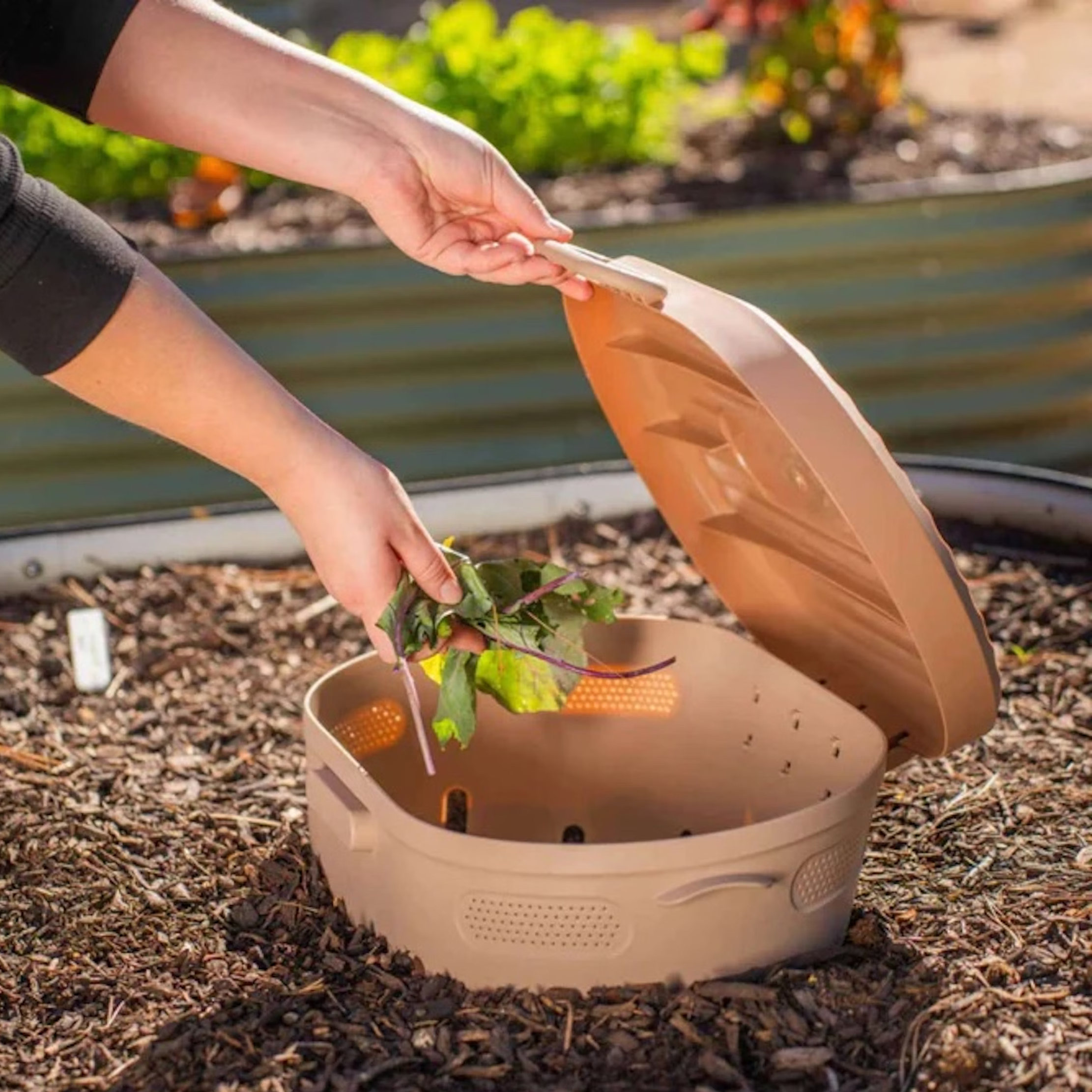Training Climbing Roses – How To Get A Climbing Rose To Climb
Paying attention to your climbing rose bush will pay off. A little TLC and training will help them grow vertically instead of horizontally.


Climbing Roses Won't Climb: Why A Climbing Rose Doesn't Climb
When training climbing roses, purchase a roll of flexible tape for tying back canes or other flexible ties like wire with a rubbery coating on them. You will want ties that provide strong support but offer flexibility with growth, not anything that may cut into the canes causing disease entry point wounds.
Not only is it important to have good support ties but also check on them often to make sure they are in good order – I have heard of cases where climbing roses have popped loose and collapsed into a heap. Imagine trying to wrestle with a huge thorn-covered octopus!
How to Get a Climbing Rose to Climb
Climbing roses need your attention to help train them in the way that they should go.
I have read recommendations to let the climbing roses grow for two to three years without pruning them except to remove broken or damaged canes. This is a good recommendation, but it does not mean that they need no attention.
While growing in those first years, keep an eye on where the canes are growing and help train them by tying them back to the support structure you have chosen.
Canes that are totally unruly are best removed early on. Not doing so can become a major frustration as they grow older and larger.
These roses do not need to be pruned way back after winter. I give climbers all the time they need to leaf out in the spring. I like them to show me where to prune and not guess at it. Pruning them too much can sacrifice blooms. Some climbing roses bloom on the previous year’s growth, thus over pruning them can severely diminish the bloom production!
Gardening tips, videos, info and more delivered right to your inbox!
Sign up for the Gardening Know How newsletter today and receive a free copy of our e-book "How to Grow Delicious Tomatoes".
Why a Climbing Rose Won’t Climb
In most cases, a climbing rose that will not climb is one that has not been trained early on in how it is expected to grow.
The main structural canes, without proper support, bow over into a mass of canes along the ground. Such a sight can make some gardeners toss their hands in the air and run! At this point, the beauty has truly become a beast (remember my comparison to wrestling an octopus?).
I have taken different approaches when confronted with such situations. Either prune out the most unmanageable canes and slowly tie up the canes that are manageable until things meet your vision, or prune out all of the canes and allow the rose to grow back with all new canes. As the rose bush grows back, the canes can then be properly tied back and “trained” in a manner that fits how you want them to grow.
Another option is to prune out all the canes and dig out the rose, then plant a new climbing rose bush and start from scratch.
The beauty beheld in those paintings and photographs can be your very own, but you must be willing to dedicate the time and effort into making it so. Enjoy your roses and the time spent with them; they will reward you in a like fashion.

Stan V. Griep contributed to Gardening Know How for many years, and has been a Colorado Native Rosarian for over four decades. He is an American Rose Society Certified Consulting Master Rosarian in the Rocky Mountain District, and a member of the Denver Rose Society, the Loveland Rose Society, and the American Rose Society. He is Gardening Know How's in-house expert on all things roses.
-
 Try The Trend – Turn Any Bed Into A Keyhole Garden With This Clever In-Ground Composter
Try The Trend – Turn Any Bed Into A Keyhole Garden With This Clever In-Ground ComposterKeyhole gardening is an efficient and sustainable practice that saves space. Get started on this DIY project quickly and easily with an in-ground composter.
By Bonnie L. Grant
-
 4 Superfast Composting Methods: Turn Waste Into Garden Gold In 30 Days Or Less
4 Superfast Composting Methods: Turn Waste Into Garden Gold In 30 Days Or LessTry the fastest composting methods to turbocharge your pile and transform kitchen scraps and garden waste into finished compost in just a few weeks.
By Mary Ellen Ellis